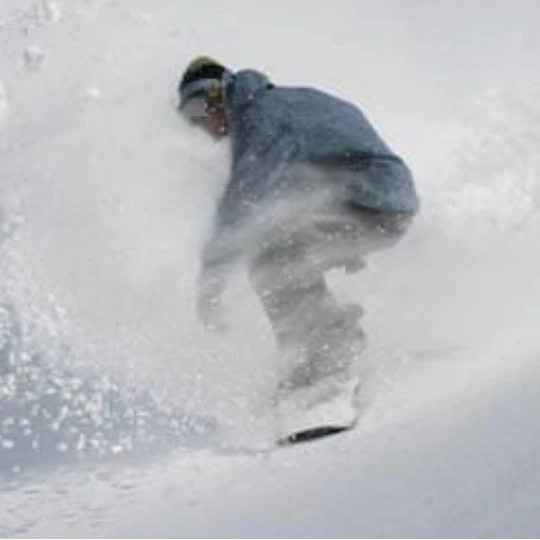
If it wasn’t for snowboarding, Eric LeMarque might never have lost his legs.
But if it wasn’t for losing his legs, LeMarque might never have come to terms with his addiction. He might never have written three books, one of which became a Hollywood movie. And he definitely wouldn’t be trying to become the first person ever to compete in the Winter Olympics as a nondisabled athlete, and later in the Winter Paralympics as an adaptive athlete.
The Olympic appearance happened 31 years ago, at the 1994 Games, where the Paris-born, Los Angeles-raised LeMarque skated for the French hockey team. His Paralympic debut might come as soon as 2026. In snowboarding.
Which brings us back to limb loss.
LeMarque had both legs amputated below the knee after getting stranded in a blizzard while snowboarding in 2004. He survived eight days in subfreezing temperatures, but that wasn’t the end of the ordeal. In addition to recovering physically, LeMarque had to rebuild himself psychologically—extinguish his drug habit, subdue his youthful arrogance, and embrace humility and a spirit of service.
When he finally strapped his prosthetic feet back into a snowboard, many years later, LeMarque was a new man. But the love of snowriding was still there.
“That was about more than just picking up my old hobby,” he wrote of his return to the slopes. “It was proving to myself—the athlete—that I was still the same person, that I could redefine my future without losing my past.”
He didn’t start to think about competing in parasports until a couple years ago, after moving to the alpine town of Wrightwood, California, near Mountain High Resort.
“Suddenly I had the ability to snowboard 100 days a year,” he says. “I started getting extremely good at it, within my level.” LeMarque scoured YouTube for videos about parasnowboarding, refined his technique, and researched the specialized prosthetic devices he’d need to compete at an elite level. During informal races with nondisabled friends, he topped out at 60 mph—comparable to the speeds of world-class para riders.
“I started to cultivate this idea, the possibility of the Paralympics,” he says. “It became a dream that wouldn’t leave me alone. It was something I knew I had to address.”
LeMarque got serious last fall, launching a GoFundMe campaign to help him acquire two Alpine Feet from BioDapt. He’ll also need support to enter some qualifying races this spring and in the early months of the 2025-26 season. As a dual citizen, he can ride for either the US or France, but the latter probably offers the clearest shot at a roster spot.
If all goes well, LeMarque will make his Paralympic debut as a youthful 56-year-old.
“I don’t mind doing this into my 60s,” he laughs. “If I don’t make it next year, I’ll shoot for 2030 or even 2034. I’m one of those amputees who was blessed with good balance and some athletic ability.”
So far, LeMarque has amassed about 10 percent of his fundraising target. To learn more about his quest or to make a donation, visit LeMarque’s GoFundMe page.




